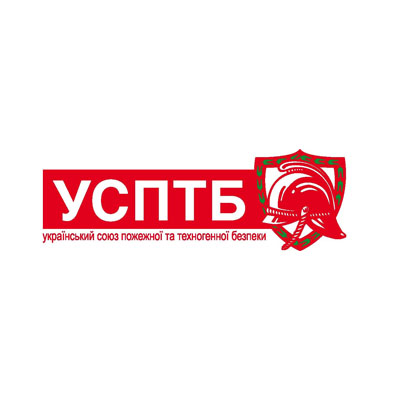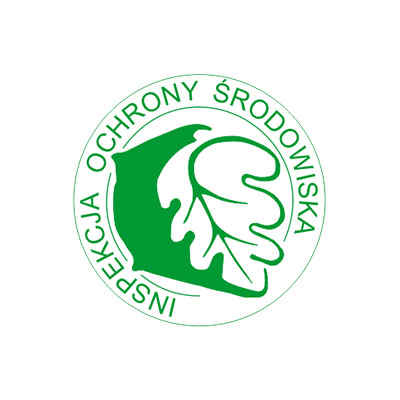Ukraine Program
Project Background
The cooperation is run with the Ukrainian partners from government, industry, science and academia and non-government sectors. It is conducted within the framework of the Atlantic perspectives of Ukraine, the objectives of the Eastern Partnership, Ukraine aspirations to become EU Member, and promotion of peace and security, including the implementation of the Chemical Weapons Convention (CWC), the UNSCR 1540 (2004), Chemical Conventions, and sustainable chemistry.
The cooperation was confirmed when ICCSS President was invited by Ukraine authorities and OSCE to organize and chair the first NATIONAL ROUND TABLE ON CHEMICAL SAFETY AND SECURITY in Kiev, in December, 2014.
The joint ICCSS-Ukrainian projects include:
1. Joint development and implementation of an Integrated Chemical Safety and Security Program in Ukraine (ICSSP) with Ukraine Chemists Union (UCU) as a leading partner;
2. Support for the work of the Chemical Security Sub-Working Group of the Global Partnership, under the Ukrainian-Polish chairmanship;
3. Joint organization of the NATO ATC course “Identification and Neutralization of Chemical Improvised Explosive Devices” – advanced training course for NATO Partnership Countries, funded by NATO within frame of Science for Peace and security programme, conducted in May 2014 in Wroclaw, Poland;
4. Development and the implementation of the EU grant: „Network of universities and institutes in raising awareness against dual use concerns of chemical materials” –participation in a project call financed by European Union in the framework of Instrument of Stability. The implementation consortium is composed of the representatives from Ukraine (Institute of Biotechnology and Petrochemistry of the Ukrainian Academy of Sciences and Science and Technology Centre), Italy, the Netherlands and Poland, Morocco and Jordan.
5. Promoting chemical safety and security in the countries of Eastern Partnership in the peaceful uses of chemistry, including transportation of chemicals and carriers of energy.
6. Development of Ukraine system of voluntary fire service; introducing model voluntary fire service stations and training system; Warsaw-Kiev 2017 Forum Declaration on DEVELOPMENT OF UKRAINE VOLUNTARY FIRE SERVICE
7. Ukraine participation and leadership in the EU-CHEM-REACT program, EU funded program on development of civil protection and public security in the Eastern Europe.
What is Ukraine cooperation about?
The core objective is to enhance chemical and environmental safety and security in the areas of development, production, use, trade and transportation of toxic chemicals and energy carriers and safe disposal of toxic wastes.
The ICCSS and the Ukraine partners joined efforts in the development of the integrated approaches to enhance chemical and environmental safety and security in the peaceful uses of chemistry, including the security of chemical plants, transportation of chemicals and energy carriers, and promote chemical security culture.
The cooperation is based on the principles of the sustainable development, public-private partnership and modern management practices.
During the Ukrainian Chemical Safety Forum, which took place in April 2016 in Kielce, during the World Chemistry Summit CHEMSS20165, the Ukrainian partners indicated that the Polish volunteer fire brigade should serve as a model solution in Ukraine. Ukrainian and Polish partners have cooperated to prepare a joint project for the creation of volunteer fire brigades in Ukraine based on Polish experience. The Warsaw-Kiev Forum on Chemical Safety / 24 April, 2017/ with the participation of representatives of the Ukrainian authorities, industry and NGOs, as well as the broad participation of Polish entities, was a tangible confirmation of the ICCSS-Ukrainian partnership. The adopted Warsaw-Kiev 2017 Forum Declaration established a solid basis for furthering the cooperation.
Why Ukraine cooperation is needed?
The unstable security situation in Ukraine, due to the conflict in the East of Ukraine, increases significantly threats of misuse of toxic chemicals and attacks against chemical plants, transportation of dangerous goods and energy carriers. Risks of major accidents, threats of terrorism in chemical industry and in transportation of chemicals in Ukraine and at the regional level, call for cooperation among the neighbours and the strengthening of chemical security in all areas of chemical activities.
Why this cooperation is unique?
For the first time international partners joined efforts to develop national program on chemical safety and security. Program has introduced a collaborative framework between the Ukrainian partners, the OSCE, the international partners, for an effective and coordinated action to ensure chemical safety and security, under ICCSS coordination, and based on ICCSS integrated approach The partners applied a multi-stakeholder approach and offered an active participation and support of chemical industries, science, academia and civil society, engagement of the financial institutions, as well as an active collaboration with the regional and international organisations to involve relevant expertise and potential. The following stakeholders were targeted and/or involved: Ukrainian institutions including civil society and scientific community, interested Governments; chemical industry, oil and gas industries, chemical associations.
Ownership of the program
The program on chemical safety and security in chemical activities and the development of Ukraine Voluntary Fire Service were based on the principles of sustainability, continuity and modern management and on the basis of public-private partnership. While being coordinated by ICCSS the Program was owned by the Ukraine stakeholders. ICCSS organized, via Ukraine Round Table Meeting and Warsaw and Kiev Forums, a broad platform for the engagement of all the relevant Ukraine and international stakeholders. They included stakeholders from government agencies, industry, academia, international organizations, media and independent experts.
Program Objectives
The core objective of the ICSSP Program was to improve Ukraine’s capabilities in the prevention of, preparedness for and response to the misuse of toxic chemicals. An effective chemical security can result in a significant increase in the effectiveness of the security of chemical materials and associated facilities and transport.
• supporting Ukraine and Ukrainian chemical industry, users of chemicals and administration in raising awareness and responsibility in handling toxic chemicals and dangerous goods;
• improving chemical security and safety by examining existing national capacity building, adopting best practices
• introducing modern solution and coordinated approaches to enhance critical infrastructure protection in Ukraine.
• enhancing the introduction of national measures to introduce the relevant national measures on chemical security, with an emphasis on the development of the administrative measures to implement UNSCR 1540 in the chemical domain
• fostering cooperation among international and national partners, chemical industry and academia
Ukraine program ongoing activities
INTEGRATED CHEMICAL SAFETY AND SECURITY PROGRAM (ICSSP PROGRAM) IN UKRAINE
Integrated Program on Chemical Safety and Security in Ukraine (ICSSP) aims to improve the chemical safety of chemical activities and increase the chemical protection of critical infrastructure in line with EU requirements. The Integrated Security Program is a response to the serious risks of the disintegration of the chemical industry in the east of Ukraine and the weakening of control over chemical activities, which has serious consequences for internal and external security. The program is implemented within the OSCE. ICCSS has been the international coordinator. The program supports the implementation of the Association Agreement of Ukraine with the EU. The USA and the EU have confirmed their readiness to finance the first projects under this program, amounting to approximately € 2 million. This is the first joint US-EU chemical safety program in Ukraine. The willingness to participate in the program has been confirmed by USA and important international organizations, EU, UN, INTERPOL and OPCW, Global G7 Partnership.
The first 3 agreed and implemented projects under the program, funded by the US and EU, include:
• Strengthen the transit control of chemicals
• Identification and management of chemicals, including proper use and disposal
• Improvement of the national crisis response system in Ukraine
The program was proposed by ICCSS and the leading partners are the OSCE Conflict Prevention Centre, OSCE Project Coordinator in Ukraine, United Nations Office for Disarmament Affairs (UNODA), Ukrainian Chemists Union (UCU), and International Centre for Chemical Safety and Security in Poland (ICCSS) as international coordinator if the program development.
THE PROGRAM ON THE DEVELOPMENT OF UKRAINE SYSTEM OF VOLUNTARY FIRE SERVICE
The program, to be introduced in accordance with the EU rules and regulations on civil protection and emergency response, provides for development of system of voluntary fire service, as an important element of supporting local communities self-governance, and civil society, increasing local capacities to prevent, prepare for and respond to CBRN accidents and environmental protection. Being implemented in Ukraine the proposed approach should be offered to other countries.
During the 2018 Kiev-Warsaw the Ukraine partners confirmed readiness to promote bilateral and regional chemical environmental and safety and security cooperation as important instruments to enhance national and regional security and reduce chemical threats. They set-up a Task Force with the ICCSS co-Chair to develop drafts of relevant regulatory measures to introduce voluntary fire service in Ukraine.
Proposal for the development of Ukraine system of voluntary fire service; introducing model voluntary fire service stations and training system - REQUEST FOR FUNDING
Project Partners



